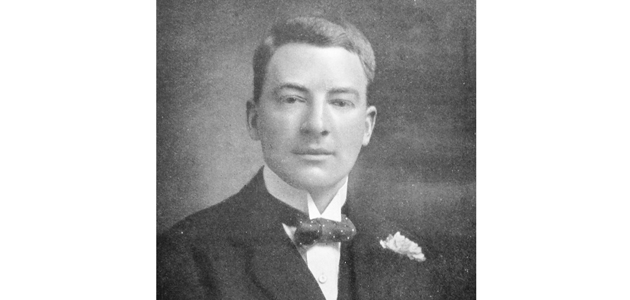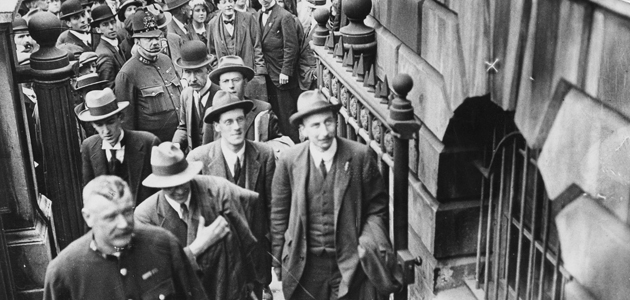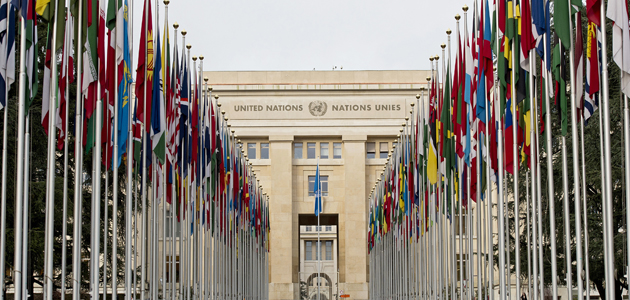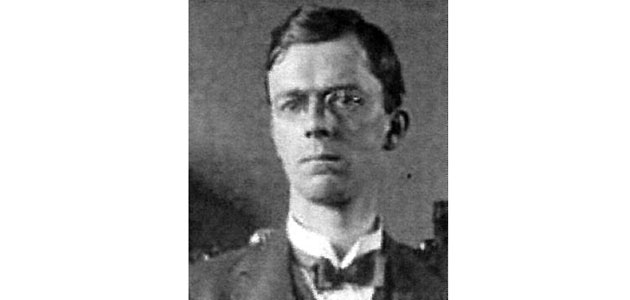Issue 26-02-2016
Featured story
Thought for the Week: Objection sustained
I am honoured to have been invited to guest-edit this special edition of the Friend, and I thank Ian Kirk-Smith and his hard-working team for helping me put it together. I hear the muffled sound of head-scratching by some readers. Today, in our own time, millions of refugees are fleeing...
Top stories
2 March 1916: D-day for conscientious objectors

The five weeks between the passing of the Military Service Act 1916 on 27 January and implementation day on 2 March saw a frenzy of activity as the government made the necessary preparations for the social revolution which compulsion entailed. The War Office was instructed to organise new Non-Combatant Corps to accommodate conscientious...
Archive photographic montage: Conscription and conscience
Above top left: Conscientious objectors put to work in Dartmoor prison (courtesy of The Peace Pledge Union). Above top right: T Edmund Harvey, Quaker Liberal MP who drafted the conscience clause with Arnold S Rowntree (copyright the Library of the Religious Society of Friends)
The politics of conscription and conscience

To conscript or not to conscript was one of the key issues Britain was faced with in the first world war. To allow or not to allow exemption for conscientious objectors was another. Both issues were fiercely debated in the country but ultimately determined in the political arena. Quakers and...
Where are we now?

Friends worked with other nongovernmental organisations at the United Nations for over fifty years to gain recognition of the right of conscientious objection to military service. It was a slow and frustrating process, with many setbacks but ultimately successful.
Hubert Peet

I expect it is difficult for you to understand why I am not at home with you all. Some day you will understand all about it. The English people and the German people have got angry with each other like two children who want the same toys and hundreds of...
All articles
No-Conscription Fellowship Manifesto
The case for and against compulsory military and munition service is being argued by many who, for reasons of age or sex, would not be subject to it. The signatories to this Manifesto think it imperative to voice a protest in the name of a large body of men in...
‘Masters of their own souls’
Severe things are said by some about the conscientious objector. He is often called a slacker. I want to suggest to honourable members that it is not quite fair to speak in these terms… Let me put the difficulty which the conscientious objector feels. May I just say what the...
See more, hear more, read more
Throughout 2016 a number of exhibitions in different parts of Britain and online are commemorating the varied experience of conscientious objectors (COs) in the first world war.
A pacifist in Israel
As a teenager in Tel Aviv, Taya Govreen-Segal was taken by her school on a Holocaust remembrance trip to Poland. She returned with a determination to refuse to join the Israeli army. ‘What happens on those trips is that there’s a very strong narrative of “never again”,’ explains Taya....
Conscientious Objector
I shall die, but that is all that I shall do for Death. I hear him leading his horse out of the stall; I hear the clatter on the barn-floor. He is in haste; he has business in Cuba, business in the Balkans, many calls to make this morning. But...
Eye - a hundred years ago
Cunning plans Catherine Marshall at the No-Conscription Fellowship (N-CF) office devised a cunning plan to help conscientious objectors (COs) communicate with each other and cheat the silence rule. Every member awaiting arrest was provided with pencil leads, a sticking plaster and instructions for smuggling them into his cell. New prisoners...
Letters - a hundred years ago
Conscientious Objection …A number outside our Society who feel it wrong to take human life are prepared to undertake service under the military authority which does not involve this, and a number of Friends have already taken the same view; a very large number are eager to do service which...
New Quaker charity hopes to ‘fill gap’
Quaker Action on Domestic Violence (QADV) launched on 19 February, following a year of preparation. Director Kate Mellor told the Friend that the new charity came about as a direct result of the work of Quaker Homeless Action (QHA), of which she is also director.
Quakers oppose changes to investment and procurement rules
Britain Yearly Meeting (BYM) has issued a response to the government’s plans to ban local councils from making ethical choices in their pension investments and procurements.
Hotel plans threaten peace in Exeter
A planned seven-storey hotel in central Exeter, if built, will ‘totally dominate the Meeting House and… invade the privacy of those wishing to use the building and the garden’, say local Friends.
Friends take to the streets
Members of Bury St Edmunds Meeting held a silent vigil to witness against the renewal of the Trident submarine programme on Sunday 21 February.
QSA welcomes Earlham students
Four students from Earlham College, Indiana, an American university founded by Quakers, are visiting Quaker Social Action (QSA). Thea White, Kyra Williams, Hao Nguyen and Brittani Reno will be with QSA until April, working on two major research projects. Thea and Kyra are researching food poverty while Hao and Brittani...
Anti-Trident rally draws crowds to Friends House
Two hundred people gathered at Friends House on 19 February for an anti-Trident rally, in preparation for a national demonstration in London on 27 February.
Friends further African interest
Twenty five members of Quaker African Interest Group (QAG) met at the Priory Rooms in Birmingham on 20 February. The event was for both ‘old Africa hands’ and newcomers to the network, organising group member Lee Taylor said. It was facilitated by Ann Floyd.
